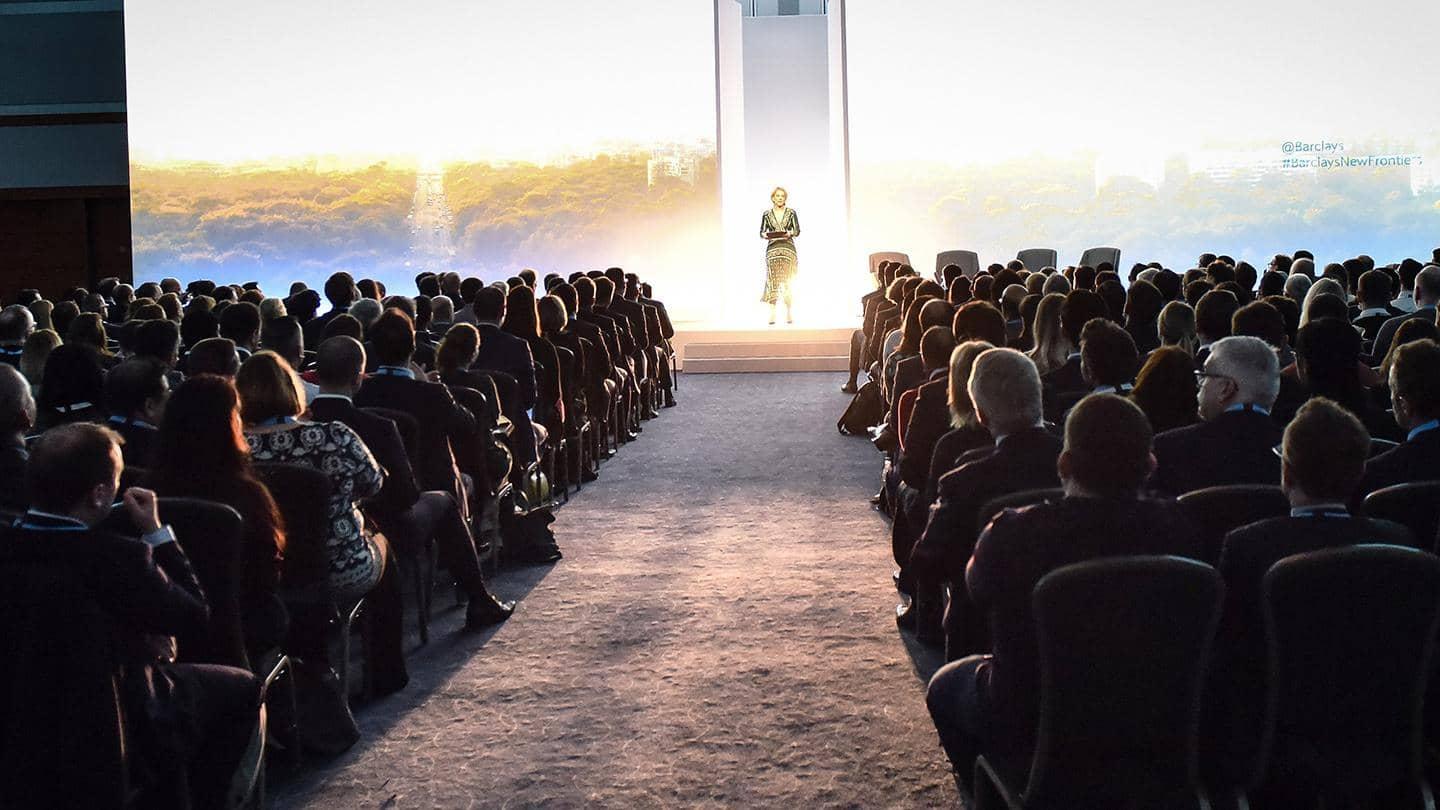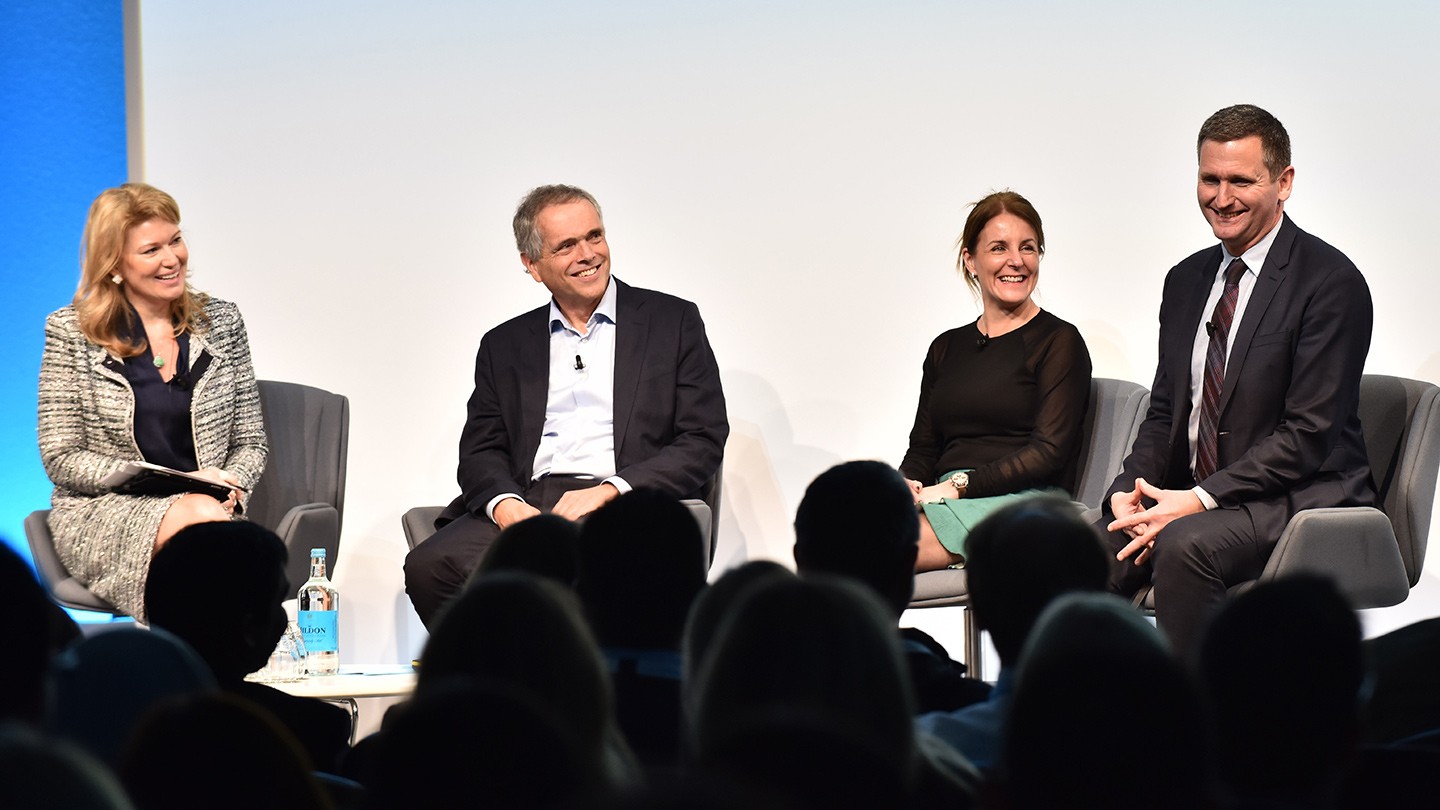
New Frontiers: bringing tech together
From AI to Gen Z to the importance of collaboration – Barclays’ tech and futures conference examines banking and beyond.
Barclays’ fifth annual New Frontiers conference, exploring the impact and possibilities of technology, saw hundreds of clients, customers, innovators and entrepreneurs gather in London for discussions that stretched beyond fintech to the “new frontiers” of world-changing technology.
Introducing the event, Barclays Group CEO Jes Staley said New Frontiers was bringing together “people that very likely may be competing with Barclays 10 years down the road, but we may want to partner in the next five years.”
Describing himself as a “tech optimist”, he added: “Tech has done extraordinary things. It’s a magnificent evolution of human history, but it will not be without its risks.”
The conference divided into three stages, categorising ‘New’, ‘Near’ and ‘Far’ technologies, ranging from MedTech to robotics and from clean technologies to big data. The dominant topic of the day, however, was artificial intelligence, with several panels discussing AI’s possibilities, but also the moral risks inherent in its development.
The possibilities of artificial intelligence
Introducing keynote speaker Manoj Saxena, Barclays UK CEO Ashok Vaswani said: “I think AI is an amazing, amazing capability. How we use AI, and create ethics for AI, is critical, and we’re spending a lot of time thinking about that. I hope you in the audience are too.”

Sasha Wiggins, Barclays Group Chief of Staff hosted the event
Saxena, Executive Chairman of CognitiveScale and a leader on IBM’s Watson project, said: “When they consider AI, people think ‘it’s either going to kill me or take my job’, but it’s about improving the human condition.” He stressed that “every business process will be transformed by AI”, and that “two years ago, when you spoke about digital, people would think about mobile, but now they think about AI. People confuse AI and machine learning but it’s a convergence of the big six: cloud, social, big data, mobile, machine learning and blockchain.”
Vaswani sensed a pivotal moment in technological progress, where the foundation blocks have been laid and the next level is waiting, and that sense carried through conference discussions hosted by Barclays leaders such as Karen Frank, Matt Hammerstein, Rhian-Mari Thomas, John Stecher and Brett Tejpaul.
Saxena also noted how “businesses like Barclays are embracing start-ups like an extended R&D team.” From Barclays hosts, to stage speakers – and the parade of Barclays Rise companies and Accelerator graduates exhibiting outside the hall in the ‘Opportunity Street’ area – the idea of collaboration was ever-present.
How we use AI, and create ethics for AI, is critical, and we’re spending a lot of time thinking about that. I hope you are too
CEO, Barclays UK
Co-opetition
Anil Stocker, CEO and Co-founder of Barclays-partnered fintech MarketInvoice, observed that the bank possessed a “top-down view – a bit like a founder-led view despite it being a big corporate – where the organisation is a partner with companies that they might ultimately compete with.”
For this to happen, said Stocker, innovation teams must share business teams’ visions. Sasha Wiggins, Barclays Group Chief of Staff and the host of the conference, said: “Without partnering with other companies, we won’t achieve the technological ambitions that we all have.”

Beyond fintech
Panels veered away from finance to feature the possibilities of robotics within pioneering medical technology, and the utility of tech in battling climate change. A key question asked at several sessions, including one featuring former Science and Technology Select Committee member Matt Warman MP, was: “How do we get tech right for the public good?”
The answers – meshing innovation, profit and regulation – might have to be implemented by another panel, ‘Generation Z: truly digital natives’, where Vice President in Barclays Corporate Bank Tim Keaveney introduced some of the generation’s leading lights to discuss the digital age, new opportunities and a different attitude of working.
In a closing keynote speech, Philip Colligan, CEO of the Raspberry Pi Foundation, told inspiring stories of delivering technology and skills to young people worldwide, and marvelled that “the same device you give to an 11-year-old to learn how to programme is also being used by the world’s best engineers”.
Hitting on the theme of collaboration during his review of the conference, Sir Ian Cheshire, Chairman of Barclays UK, noted that for Barclays to continue to bring new ideas to the world of finance, the bank will need to “encourage a mutual understanding of the benefits tech can bring, and collaborate in a way that hasn’t been traditional in the banking industry”.
Jes Staley had earlier said that: “the reality is, when you deal with a bank of our size and our complexity, everything that we do now is being digitized. Everything we do produces data. And data is something that is going to inform how we engage with our customers and clients. How we deal with risk. How we engage with our regulators. Technology is so prevalent in all that we do.”
Cheshire added: “We have to think very carefully about the context for technology. It’s not acceptable to view it in a vacuum and we have to understand the social context: how it can be used for good and bad, and how we embed our technologies in a responsible way.”